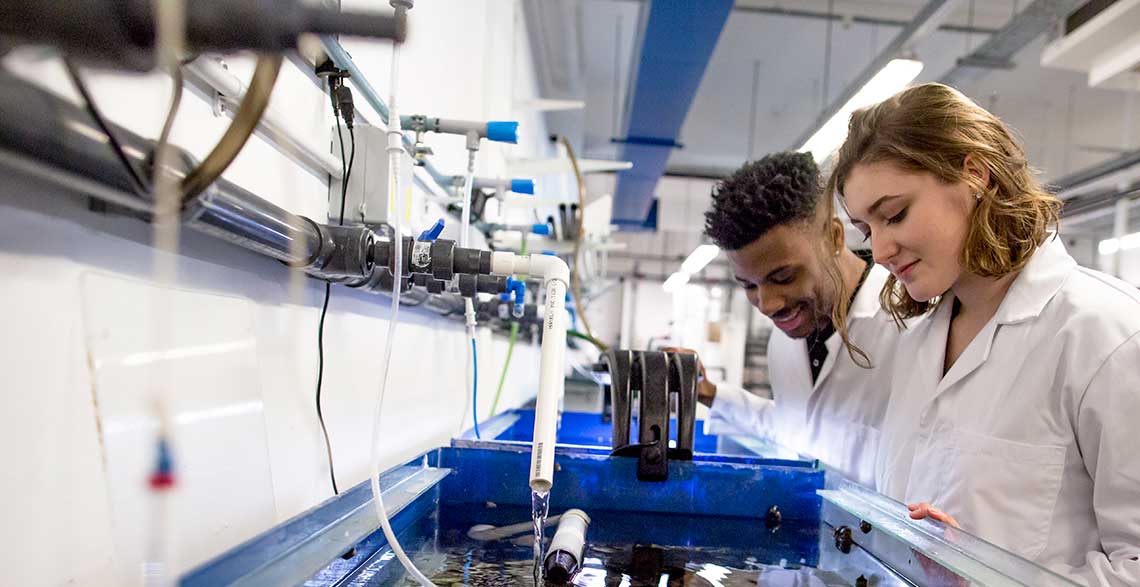Aquarium systems for marine & freshwater organisms

The IBERS aquarium facility is comprised of two large and several smaller annex rooms, all temperature and lighting controlled and supervised by trained animal welfare technicians.
The facility is flexible in nature, allowing teaching and research to be carried out side by side, and novel experiments/projects to be carried out without being restricted to fixed systems.
The two main rooms have large volume, recirculation based filtration units at their disposal, and house local temperate marine species, tropical fish, salmonids, and a host of other plants and animals. Seawater is transported in regularly from Cardigan Bay to replenish the marine systems, and synthetic seawater can be produced when required.
Recent research in the main two rooms has included monitoring the effects of climate change on species populations and biotic interactions, climate change related gas outputs from Tilapia farming, bio-erosion caused by intertidal grazers, among a whole host of undergraduate and postgraduate dissertation projects.
Several ongoing projects are housed in the smaller rooms, including research into guppy shoaling behaviour, learning, memory and ecotoxicology in pond snails and circadian rhythms in marine invertebrates.
Support for students and researchers is supplied by NACWO’s (Named Animal Care and Welfare Officer) and experienced aquarists with good knowledge of the local area and practical skills to assist in the design and building of experimental systems and providing assistance/ supervision in the field where necessary.
The aquarium facility is complimented by a large dedicated student project wetlab, kitted out with all the necessary equipment (microscopes/ incubator cabinets /drying ovens/ glassware, etc) required to complete experiments and data collection outside of the aquarium.
Contact
Rory Geoghegan, Aquatics Technician
Tel: 01970 623111 ext. 4249 (Office) or 2898 (Aquarium Facilities)
